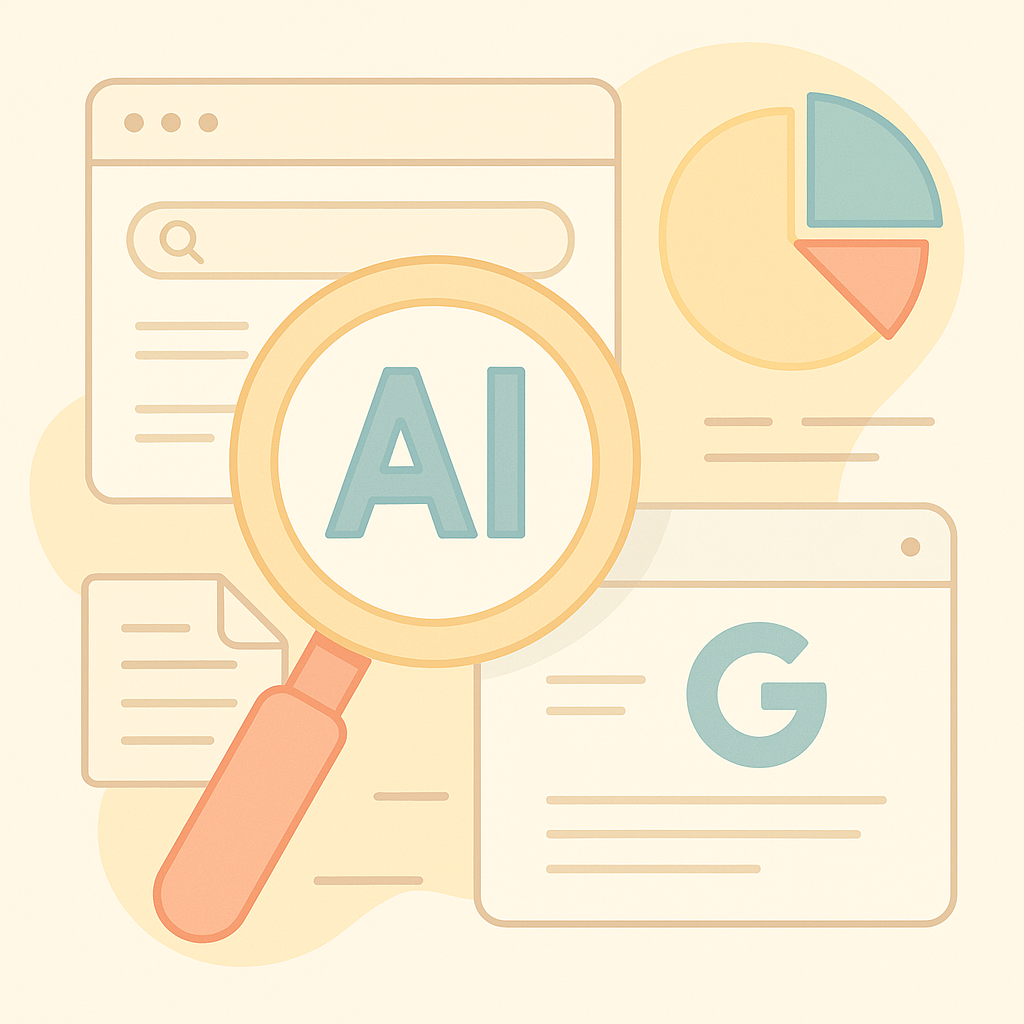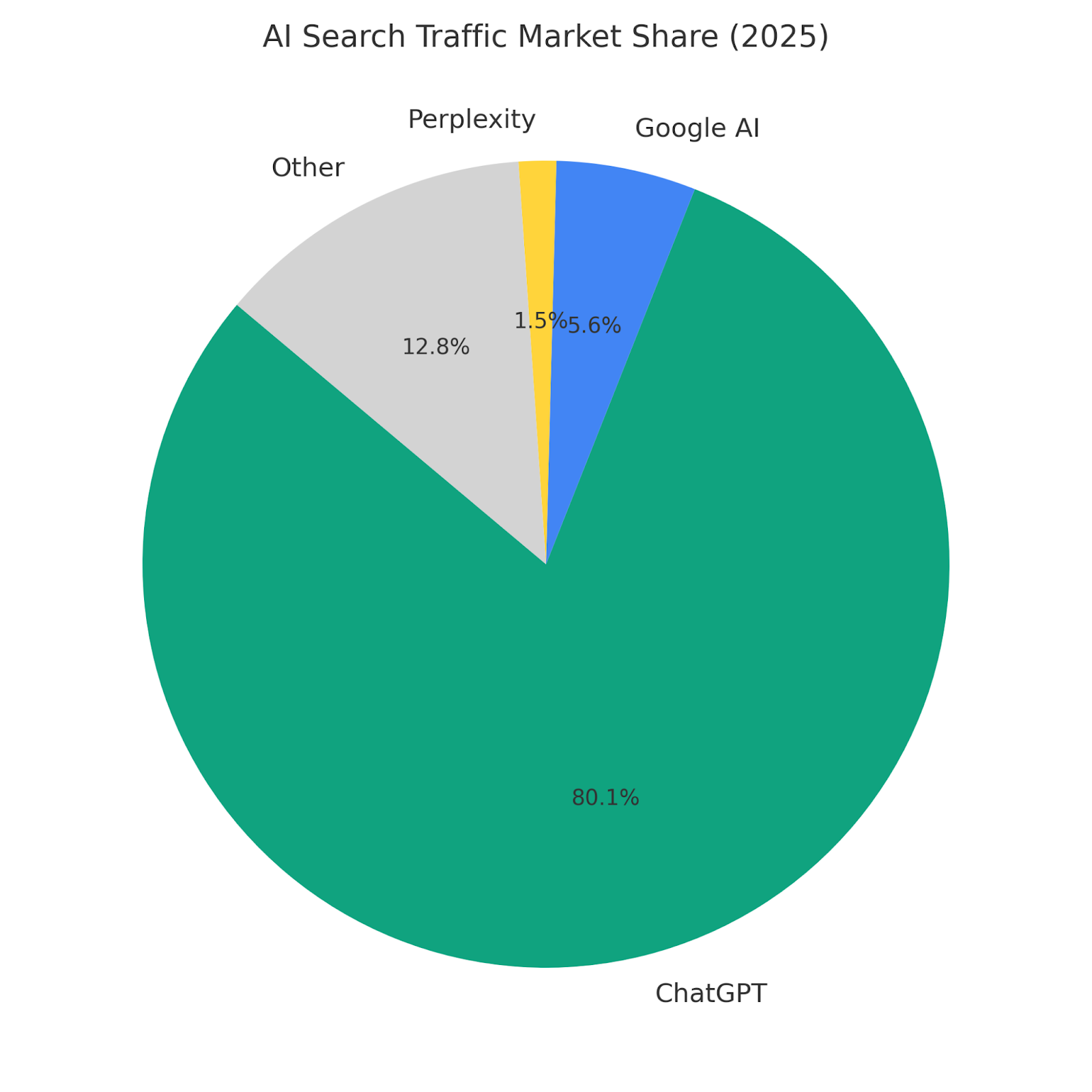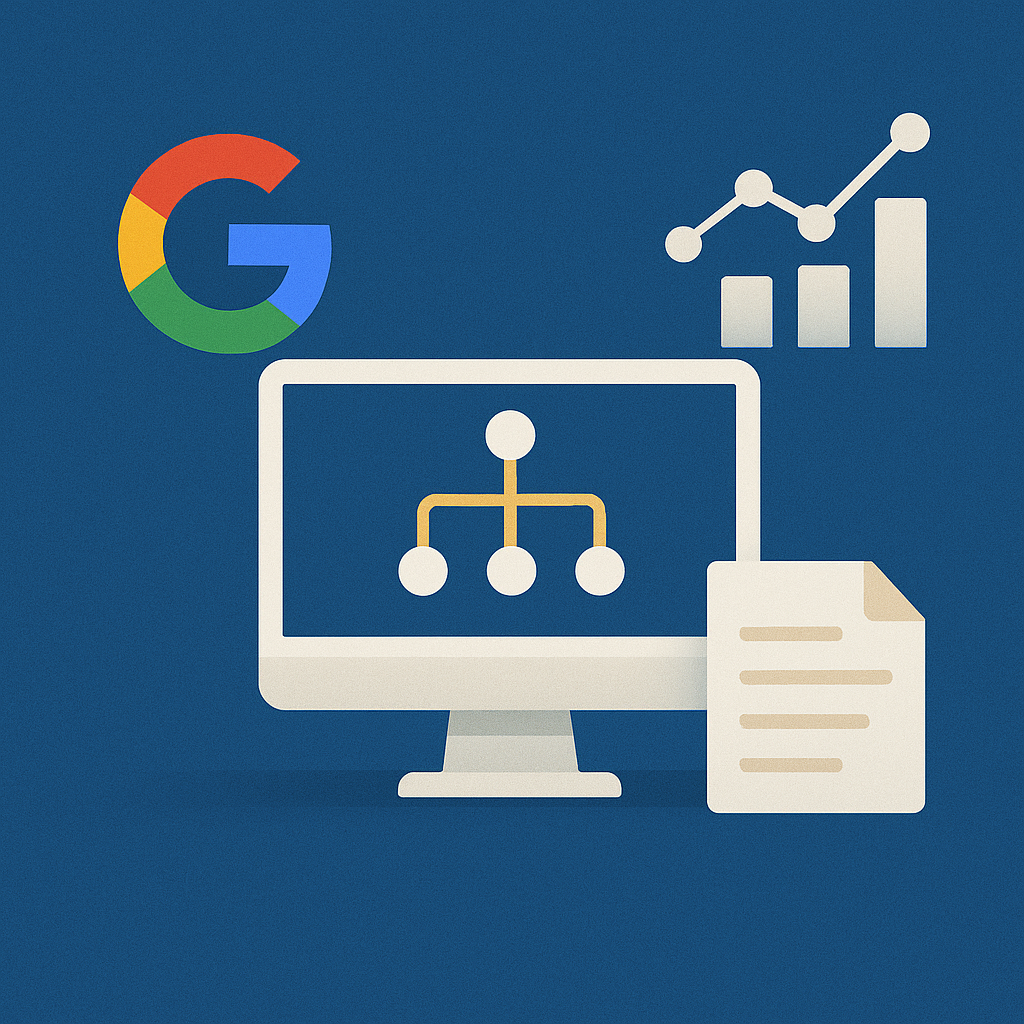

The search landscape has fundamentally shifted. A staggering 57% of Search Engine Results Pages (SERPs) feature AI Overviews as of June 2025, up from just 25% in August 2024. Traditional SEO tactics that worked for Google's algorithm-based results are no longer sufficient in an AI-driven search environment. ChatGPT commands 80.1% market share of AI search traffic, followed by Google's AI features and Perplexity.
This isn't just about tweaking your existing SEO approach. It's about understanding how AI systems consume, process, and present information to users. The companies that master AI search optimization today will capture tomorrow's leads while their competitors struggle with outdated tactics. For the first time since 2015, Google's search market share has dropped below 90%, signaling that change is accelerating.

Source: SimilarWeb AI Global Report, May 2025
AI search engines operate fundamentally differently from traditional search algorithms. Instead of ranking pages based on keywords and backlinks, they synthesize information from multiple sources to provide direct answers to user queries. This transforms them from "search engines" into "answer engines" a critical distinction for B2B tech companies.
The shift is profound. Users no longer scroll through ten blue links. They receive comprehensive answers generated from the most relevant, authoritative sources. Research shows that 52% of sources mentioned in AI Overviews come from the top 10 organic results. Interestingly, 90% of ChatGPT citations come from pages ranked 21 or lower in traditional SERPs.
For B2B tech companies, this presents both a challenge and an unprecedented opportunity. Your content is now competing to be cited when prospects ask questions like "best cybersecurity solutions for startups" or "how to scale SaaS infrastructure."
Before optimizing for AI search, you need to understand your current position. Unlike traditional SEO where you can check rankings on specific keywords, AI search visibility requires a different approach.
Focus on the platforms that matter most for B2B discovery.
Testing Framework:
Start by querying these platforms with questions your prospects typically ask. For a cybersecurity company, test queries like "enterprise ransomware protection strategies," "compliance frameworks for SaaS companies," or "zero-trust security implementation guide." Document which sources these platforms cite and whether your content appears.
Create a tracking spreadsheet that monitors:
AI systems favor content that's well-structured, comprehensive, and authoritative. Review your existing content through this lens. Does your content provide clear, definitive answers to common questions? Is it organized with proper headings, subheadings, and logical flow? Can an AI system easily extract key information and present it coherently?
Look specifically for content gaps where you have partial information but not comprehensive coverage of topics. AI systems prefer sources that provide complete context rather than fragmented insights.
AI systems don't read content the same way humans do. They process information looking for patterns, authority signals, and comprehensive coverage.
Google's E-A-T (Experience, Expertise, Authoritativeness, Trustworthiness) guidelines remain crucial for AI search. AI platforms prioritize content that demonstrates clear expertise and provides reliable information. For B2B tech companies, this means showcasing:
Authority-Building Elements:
Different AI platforms favor specific content types. Based on current research, prioritize these formats that consistently drive citations:
AI search engines rely on sophisticated crawlers to understand and index your content. Over 5% of websites currently block GPTBot (OpenAI's crawler), creating opportunities for sites that welcome AI bot access. Your technical foundation determines whether AI systems can discover, understand, and cite your content.
Critical AI Crawlers to Allow:
Check your robots.txt file to ensure you're not blocking these crawlers. Remove any blocks unless you have specific reasons to restrict access. Blocking these crawlers means missing visibility in the fastest-growing search channels.
With 60% of global website traffic coming from mobile devices, AI systems prioritize mobile-friendly sites. Ensure your content loads quickly and displays properly across all devices. AI search platforms favor sites that deliver strong user experiences, as they're looking for sources they can confidently recommend to users.
Structured data helps AI systems understand your content's context, type, and purpose. For B2B tech companies, implement these schema types:
This structured approach makes your content more accessible to AI systems and increases citation opportunities.
The biggest shift from traditional to AI search is the growing importance of brand mentions over traditional backlinks. AI systems treat brand mentions across the web as trust signals, whether in:
Research reveals that platforms like Reddit and Quora are among the top-cited sources in Google AI Overviews. User-generated content carries significant weight in AI recommendations. Focus your mention-building efforts on:
Traditional SEO metrics remain important but aren't sufficient for measuring AI search success. With Google not providing specific Analytics data for AI Overviews traffic, you need creative approaches to track performance.
Key Performance Indicators:
These indirect indicators often correlate with improved AI search visibility and demonstrate growing authority in your space.
B2B tech companies that invest in AI search optimization now are positioning themselves for sustainable competitive advantages. As AI search adoption accelerates and more companies compete for visibility, early movers will have established authority signals and technical infrastructure that are increasingly difficult to replicate.
The key insight is that AI search optimization isn't just another marketing channel. It's becoming the primary way prospects discover and evaluate solutions. Companies that view this transition as an opportunity to demonstrate genuine expertise and provide exceptional value will thrive in the AI-driven search landscape.
Your prospects are already using AI search to research solutions, evaluate vendors, and make purchasing decisions. The question isn't whether you should optimize for AI search, but how quickly you can establish authority and visibility in this rapidly evolving environment. Start implementing these strategies today to ensure your B2B tech company remains discoverable and competitive, or you can reach out to Segment SEO to help you get featured in AI Search.


